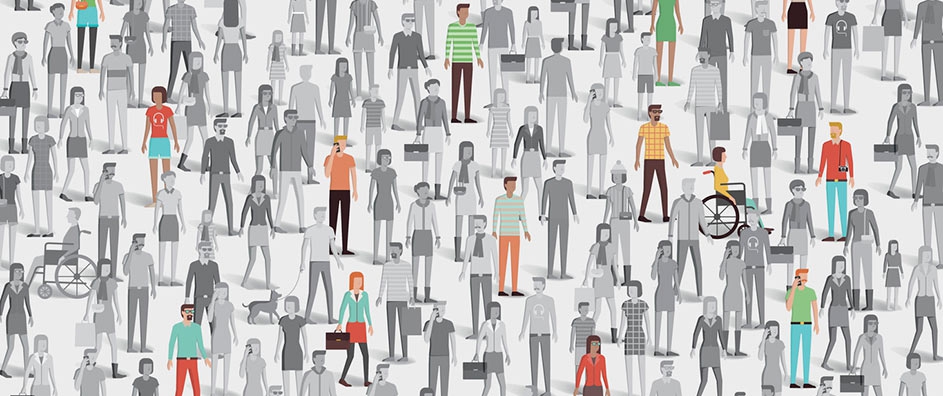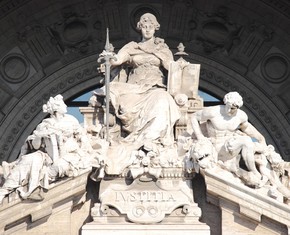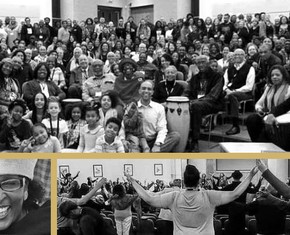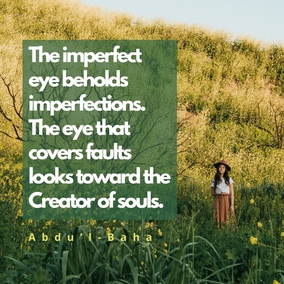The views expressed in our content reflect individual perspectives and do not represent the authoritative views of the Baha'i Faith.
Are you upset about the new language norms people have built around so-called “identity politics?”
Do you get irritated about “politically correct” or “PC” speech? Do you deeply resent being called prejudiced, a racist, or a homophobe, or an Islamophobe? Do you feel censored, dismissed or written off because you don’t necessarily agree with today’s “progressive orthodoxy?” Do you think that people are basically equal now, and that it’s time to stop all this talk about prejudice and racism?
If so, you might be white.
Recent research from a group of sociologists, psychologists and organizational behavior experts at Stanford University reveals that the contemporary backlash against “political correctness” has its roots in the decline of historical white privilege and dominance:
Long accustomed to a privileged position in the racial hierarchy, in recent years white Americans have increasingly found that position precarious, reacting with greater levels of racial resentment and greater support for a political movement seen as favoring white interests over those of minorities.
 The research shows that those who think political correctness threatens the relative standing of whites in their culture may be likely to feel—whether consciously or unconsciously—a resulting sense of racially-based resentment. If you’re part of the majority in your culture, then you might be subconsciously used to the power and privilege usually accorded to that majority. As a part of the majority, you may feel, aware of it or not, that your society owes you better treatment than others. Then, if you don’t acknowledge the existence of racial prejudice, the societal “PC” norms may seem completely unnecessary to you—an imposition on your right to say what you want to say, and feel the way you want to feel.
The research shows that those who think political correctness threatens the relative standing of whites in their culture may be likely to feel—whether consciously or unconsciously—a resulting sense of racially-based resentment. If you’re part of the majority in your culture, then you might be subconsciously used to the power and privilege usually accorded to that majority. As a part of the majority, you may feel, aware of it or not, that your society owes you better treatment than others. Then, if you don’t acknowledge the existence of racial prejudice, the societal “PC” norms may seem completely unnecessary to you—an imposition on your right to say what you want to say, and feel the way you want to feel.
Many people—especially older people—now believe that the modern emphasis on identity politics and political correctness has gone beyond the bounds of fairness and propriety. They yearn for a simpler time, an idealized past where women, people of color, immigrants and the LGBT population weren’t so visible, so vocal and so focused on gaining their rights and their recognition.
This general sense of resentment against political correctness and conformity has suffused the culture of many societies around the world lately. It has even begun to play a significant part in elections. It represents an angry backlash against political correctness and its prescription for “inclusive” language—but more importantly, at its deepest roots, against the idea of inclusiveness itself.
Baha’is believe that the societal problems political correctness identifies go far beyond language. Blaming language, rather than identifying and repairing the root causes of our society’s social and spiritual crises, only forestalls the problems. Language itself simply reflects reality—it doesn’t cause it.
So from a Baha’i perspective, inclusive language and behavior isn’t just “politically correct,” as some people would have us believe. Instead, inclusiveness constitutes one of the primary goals of a just and peaceful society. The Baha’i teachings say that the basic principles of all of God’s prophets are universal and inclusive:
It is appropriate and befitting that in this illumined age—the age of the progress of the world of humanity—we should be self-sacrificing and should serve the human race. Every universal cause is divine and every particular one is temporal. The principles of the divine Manifestations of God were, therefore, all-universal and all-inclusive.
Every imperfect soul is self-centred and thinketh only of his own good. But as his thoughts expand a little he will begin to think of the welfare and comfort of his family. If his ideas still more widen, his concern will be the felicity of his fellow citizens; and if still they widen, he will be thinking of the glory of his land and of his race. But when ideas and views reach the utmost degree of expansion and attain the stage of perfection, then will he be interested in the exaltation of humankind. He will then be the well-wisher of all men and the seeker of the weal and prosperity of all lands. This is indicative of perfection.
Thus, the divine Manifestations of God had a universal and all-inclusive conception. They endeavoured for the sake of everyone’s life and engaged in the service of universal education. The area of their aims was not limited — nay, rather, it was wide and all-inclusive. – Abdu’l-Baha, Selections from the Writings of Abdu’l-Baha, pp. 68-69.
That “universal and all-inclusive conception,” the Baha’i teachings say, comes directly from the prophets of God, who all taught love, unity and universal kindness.
The fact that we have human societies where those heavenly attributes are lacking means we have real work to do—not only in our speech, but in our actions.
You May Also Like
Comments

















Respectfully submitted,
Haleh Henry
that proposition that "you
might be white", because
it could be taken the wrong
way. I think David made it
only to have us think about
the possible roots of back-
lash and resentment. Even
the most charitable person
can be unbalanced, unsettled, and defensive
by looming new social
changes.